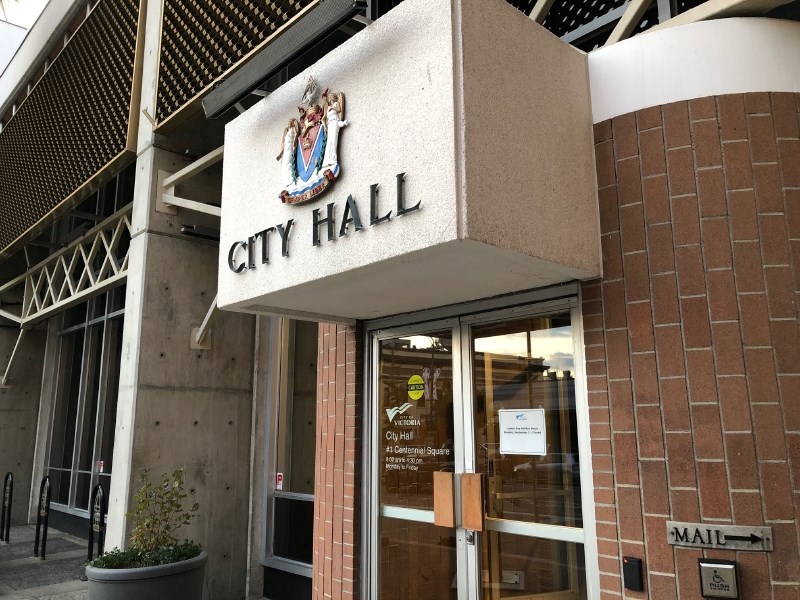Nine candidates will compete to fill a vacant seat on Victoria city council.
Nominations closed Friday for the April 4 byelection to replace former councillor Laurel Collins, who resigned in November after winning the Victoria riding for the NDP in last year’s federal election.
The candidates who filed nomination papers by the deadline are:
• Stephen Andrew, a former executive director of Kidney Cancer Canada and the first runner-up for council in 2018.
• Jeremy Caradonna, a climate policy maker with B.C.’s Climate Action Secretariat and adjunct professor at the University of Victoria.
• Peter J. Forbes, a general contractor and builder in Victoria’s residential sector.
• Riga Godron, who ran for a council seat in the 2018 general election.
• Stefanie Hardman, a researcher, urban planner and the nominee of Together Victoria, a registered elector organization that supported Collins, Coun. Sharmarke Dubow and Coun. Sarah Potts in 2018
• Gordon MacKinnon, who ran for a council seat in the 2014 general election.
• Rachael Montgomery, a registered nurse and a manager in the learning and performance support department at Island Health.
• Keith Rosenberg, a Canadian veteran on disability who ran in last year’s federal election representing the Veterans Coalition Party.
• Alexander Schmid, a physics lab instructor at the University of Victoria and a former mayoral candidate in 2018.
The official campaign period begins March 7 and runs through to general voting day. Elections B.C. says the campaign spending limit for each candidate is $27,416.
Victoria council opted to save money on the election by cutting back on the number of election-day voting stations, eliminating special onsite voting at seniors care homes, and limiting the amount of communications and advertising done to inform people about the byelection.
The scaled-down approach will cost taxpayers an estimated $170,000, compared with as much as $360,000 for a standard election
The modified process reduces the number of voting stations on election day to five from 12, but offers more advance voting opportunities at city hall.
Advance voting begins March 23.
The city will mail voter information to every Victoria household, and will continue to compile and post candidate-profile information on its website, something that was done during the last general election.
• Voting on election day will take place at: James Bay Community School, 140 Oswego St.; Oaklands Elementary School, 2827 Belmont Ave.; Sir James Douglas Elementary School, 401 Moss St.; Victoria City Hall, 1 Centennial Square; and Victoria West Elementary School, 750 Front St.



